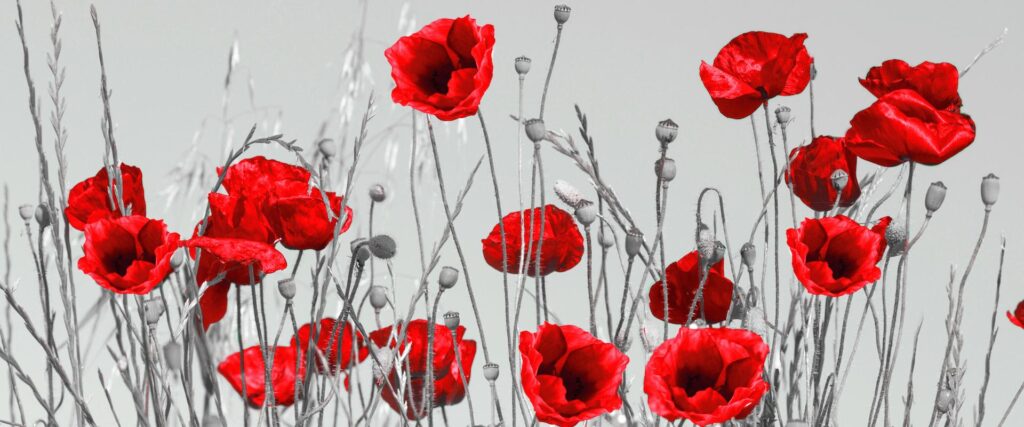Remembering a Different Future
Remembrance Day began not as a commemoration of war but as a commemoration of the ceasing of war – specifically, the ceasing of the hostilities of the “War to end all wars” – at 11 a.m. on November 11, 1918.
We do not have holidays to remember the beginning of wars. Remembrance Day is not a celebration of war. It is a day set aside to remember the end of war. And so, on Remembrance Day we have some things to remember. We remember those who fought in conflicts far and wide, we remember what it was like, who was with us, and who did not come back.
My father was in the Army during the Second World War. But he shared very few memories of his time overseas when he was alive. I learned more about his war service after his passing when my mother and I sorted through some of his things. I have wondered over the years if he could not or chose not to speak of the things that he remembered. Some things are too hard to talk about it even when you remember them.
It is too hard to talk about the details of what happened, the real cost — how comrades died, how parents, brothers, sisters, or friends paid the costs of war. And how the mind and heart were affected and never again quite the same. Perhaps the most important memories are the silent ones that we do not talk about because of their pain and because they are impossible to share with anyone who was not there.
But the memories are there and remembered – mostly in silence and sometimes aloud when the time is right. It is not necessary that the memories be shared, but it is important that those of us who were not there understand just what was done for us.
It is important too that those who were there, those who fought and those who served at home while friends died overseas, know that all that happened made a difference. It is important that those who sacrificed so much are honoured and rewarded.
We also remember to learn how things might be avoided or prevented from happening again. Remembrance Day is thus not only about looking back but also about how we might move forward. In this regard, the Biblical vision looks to a different script that we might live by.
In Isaiah 2:2-5, the Old Testament prophet shares a vision of God’s future for the world. It focuses on God’s promise to do justice and to set things right among the nations: “He will judge between the nations and will settle disputes for many peoples” (Isaiah 2:4). This suggests the removal of the root causes of war like aggression, oppression, greed, and the desire for domination. As a result, nations will feel secure enough to “beat their swords into plowshares, and their spears into pruninghooks: nation shall not lift up sword against nation, neither shall they learn war any more.”
God’s vision for the world is one of nations turning costly weapons designed to kill into agricultural implements that increase food production and improve human welfare. It is a vision that sees the billions of dollars allocated to weapons that destroy redirected to life-enhancing farm implements, hospitals and care homes, schools, water treatment plants, and other gifts that cherish all of life. It is a vision wherein God ultimately bends the stubborn forces of human history toward peace and well-being. It happens here and now through Jesus who “came and preached peace” and “has destroyed the barrier, the dividing wall of hostility” between peoples and nations (Ephesians 2:14-17).

This Remembrance Day, it is important that those of us who have no comprehension of just what it was like all those years ago to know what happened. We know that there was a cost and we honour those who served and those who died.
We remember, even though it may be hard to talk about what we remember. We remember because forgetting would be a far greater tragedy. And when we remember, we turn to God’s vision of a different future of reconciliation and hope, justice for all peoples, and harmony among the nations.
Darrell Buchanan
This article is revised and adapted from a message shared
at the Town of Gravelbourg Remembrance Day Service in 2015
and published in the Gravelbourg Tribune, November 9, 2020.
Remembering a Different Future Read More »
